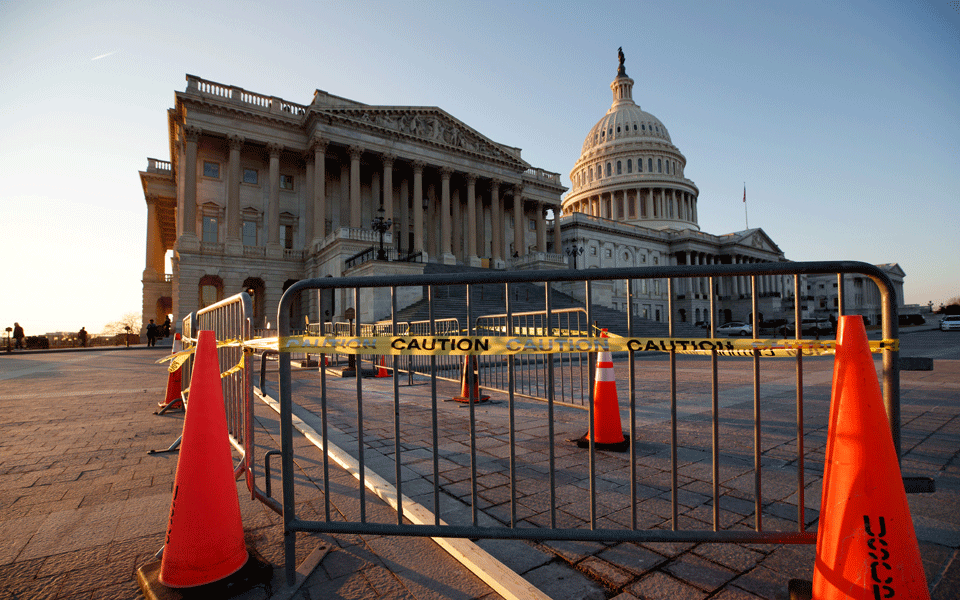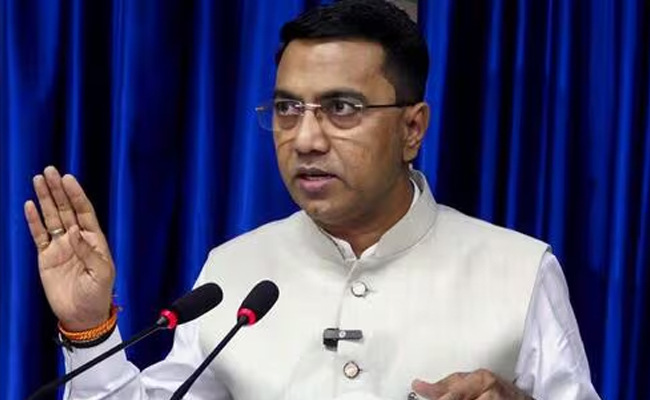Washington: The US federal government officially shut down on Friday for the second time in three weeks after a single senator, Rand Paul of Kentucky, held up a vote on a far-reaching budget deal that would have staved it off.
Senators are still expected to vote in favor of the deal in a series of votes that will most likely begin around 1 a.m., reports The New York Times.
If the House approves the deal, the government would have reopened before the workday begins.
Angered at the huge spending increases at the centre of the deal, Paul, a Republican, delayed passage for hours with a demand to vote on an amendment that would keep in place strict caps on spending that the deal would rise.
"The reason I'm here tonight is to put people on the spot," Paul said.
"I want people to feel uncomfortable. I want them to have to answer people at home who said, ‘How come you were against President Obama's deficits and then how come you're for Republican deficits?'"
The shutdown comes on the heels of a three-day closure brought about by Senate Democrats last month, The New York Times reported.
As midnight approached, Paul did not relent, bemoaning from the Senate floor what he saw as out-of-control government spending and repeatedly rebuffing attempts by his fellow senators to move ahead with a vote.
The text of the deal, stretching more than 600 pages, was released late Wednesday night, revealing provisions large and small that would go far beyond the basic budget numbers.
The accord would raise strict spending caps on domestic and military spending in this fiscal year and the next one by about $300 billion in total. It would also lift the federal debt limit until March 2019 and includes almost $90 billion in disaster relief in response to last year's hurricanes and wildfires.
The deal had been expected to sail through the Senate, and the House had planned to vote on it later Thursday, until Paul took his stand.
In last month's closure, the vast majority of Senate Democrats voted to block a bill that would have kept the government open, only to retreat a few days later and agree to end the closure.
Let the Truth be known. If you read VB and like VB, please be a VB Supporter and Help us deliver the Truth to one and all.
New York (PTI): At the centre of the landmark US Supreme Court verdict striking down President Donald Trump’s sweeping global tariffs is an Indian-origin lawyer who argued before America’s highest court about the illegality of the levies.
Neal Katyal, the son of Indian immigrants and the former Acting Solicitor General of the United States under President Barack Obama, argued the consequential tariff case on behalf of small businesses and won.
“Victory,” Katyal posted on X shortly after the Supreme Court verdict came in on Friday.
Katyal, in an interview to MS Now, said “One of the great things about the American system is what just happened today. I was able to go to court - the son of immigrants — able to go to court and say on behalf of American small businesses, 'Hey, this President is acting illegally.'"
ALSO READ: Nothing changes, India will be paying tariffs; we will not be paying tariffs: Trump after SC ruling
"I was able to present my case, have them ask really hard questions at me, it was a really intense oral argument and at the end of it, they voted and we won,” he said.
“That is something so extraordinary about this country. The idea that we have a system that self-corrects, that allows us to say ‘You might be the most powerful man in the world but you still can’t break the Constitution. That to me is what today is about,” he added.
Katyal was born in 1970 in Chicago to a paediatrician mother and engineer father, both of whom immigrated from India.
Katyal is a partner in the Washington DC office of Milbank LLP and a member of the firm’s Litigation & Arbitration Group.
In a statement following the verdict, he said the US Supreme Court stood up for the rule of law and Americans everywhere.
“Its message was simple: Presidents are powerful, but our Constitution is more powerful still. In America, only Congress can impose taxes on the American people. The US Supreme Court gave us everything we asked for in our legal case. Everything.”
Katyal expressed gratitude for the leadership of the Liberty Justice Centre, who “led the fight when others wouldn’t”.
"This case has always been about the presidency, not any one president. It has always been about separation of powers, and not the politics of the moment. I'm gratified to see our Supreme Court, which has been the bedrock of our government for 250 years, protect our most fundamental values,” he said.
According to his profile on the Milbank website, Katyal focuses on appellate and complex litigation and has argued 54 cases before the Supreme Court of the United States.
He has also served as a law professor for over two decades at Georgetown University Law Centre, “where he was one of the youngest professors to have received tenure and a chaired professorship in the university's history” and has served as a visiting professor at Harvard and Yale law schools.
A graduate of Yale Law School, Katyal clerked for Guido Calabresi of the US Court of Appeals for the Second Circuit as well as for Justice Stephen G. Breyer of the US Supreme Court.
He also served in the Deputy Attorney General's Office at the Justice Department as National Security Advisor and as Special Assistant to the Deputy Attorney General during 1998-1999.
Katyal is the recipient of the “highest award given to a civilian” by the US Department of Justice, the Edmund Randolph Award, which was presented to him by the Attorney General in 2011, his profile said.
The Chief Justice of the United States appointed him in 2011 and 2014 to the Advisory Committee on Federal Appellate Rules.
In a post on X dated November 4, 2025, Katyal posted a photograph of a traditional ‘Kada’ (bangle) placed on a ‘Brief for Private Respondents’ related to the Supreme Court tariff case against Trump.
“Thinking of my father first and foremost, who came to this land of freedom….May the Constitution win,” Katyal wrote.





